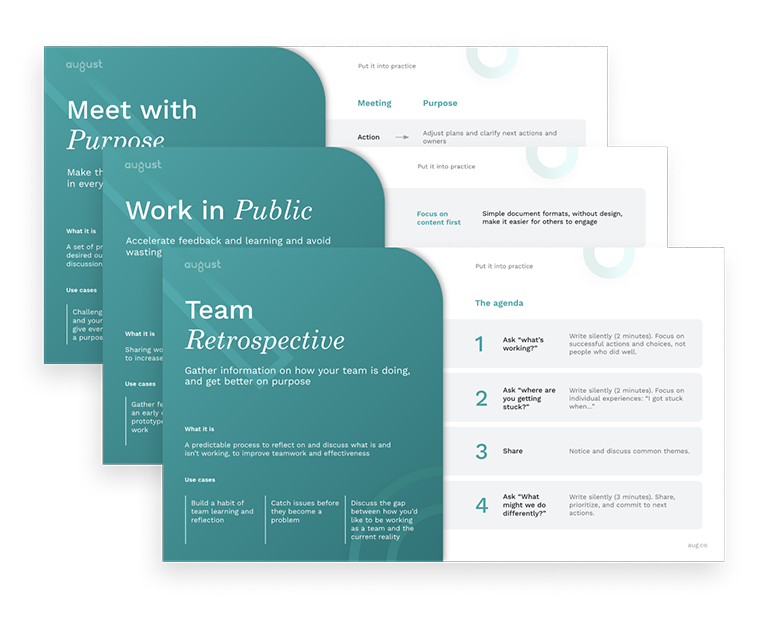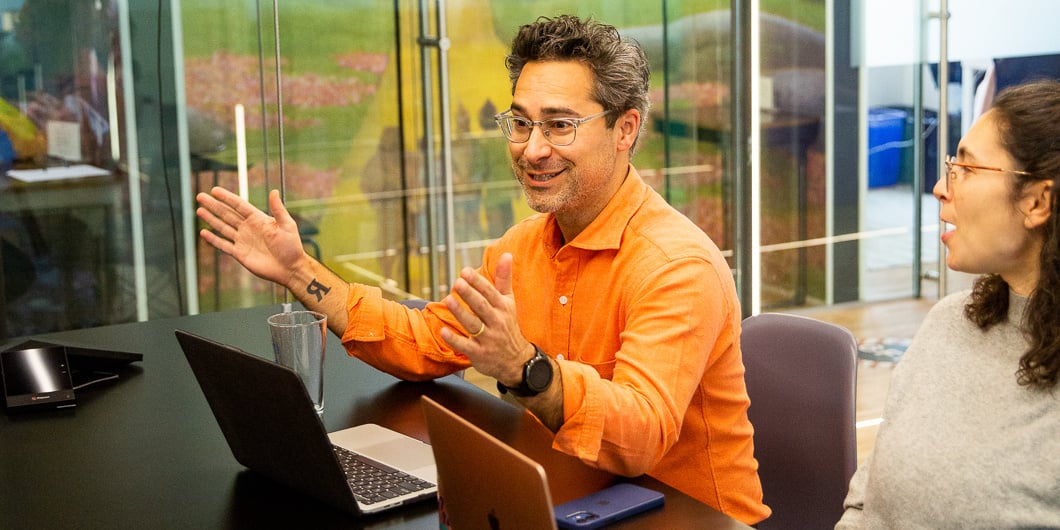Published February 5, 2017 | Updated January 29, 2019 | 5 minute read
I remember it like it was yesterday. At the time I was obsessed with uncovering all of my blindspots and perfecting all the imperfect places. So when the opportunity arose during one of our classes to ask for feedback from everyone, I raised my hand. And it was…awful. There was no structure or format for giving or receiving the feedback, and once the floor opened, my classmates went to town. People shared their thoughts and impressions honestly, which is exactly what I wanted, right?
It was. It is still. Yet while the feedback coming my way was honest, it wasn’t really helpful. You are idealistic, you are a yes woman, you seem to be too interested in this thing or that thing… I heard a lot about what people thought of me, but I didn’t actually get a real sense of why me showing up in a certain way mattered to people, or how it impacted them. I also didn’t have a real sense of what to do differently or how to change my behavior. I felt picked apart and dissected. I sensed a lot of opinions that weren’t actually about me, and I felt confused by it. I felt incredibly vulnerable, and at a loss for how to engage the feedback when I didn’t understand it, or agree with it.
A few people shared reflections on how my behavior impacted them, and what it meant to them when I did something or said something in a certain way. ‘When you speak about abstract things, I have trouble keeping up. A few people shared some positive feedback. ‘I appreciate your curiosity and hunger to keep learning’. Most of the positive feedback unfortunately got lost in the overwhelming confusion, hurt, and disorientation I felt. My desire to be great and perfect and amazing suffered a pretty serious blow and the voice of my own self-judgment weaved itself into all of the rest of it.
The disorientation lasted a good while. I spent a lot of time writing and reading and reflecting to sort through it all. I was surprised because previous times when I’ve engaged in conversations of feedback, I’ve come out on the other feeling more connected to the other person, and clearer about how I can change to support the work we’re doing and the relationship dynamic between us. In this scenario though, I felt less connected, and more defensive. Sour as that experience was, I learned a few crucial lessons about giving and receiving feedback from that experience.
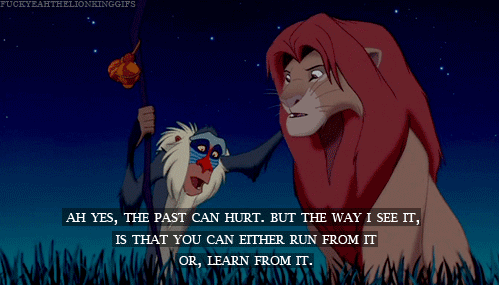
Impact, not Opinion
The feedback I had the easiest time integrating from that session was feedback about how my behavior impacted someone, what it meant to them when I did something or said something in a certain way. ‘When you speak about abstract things, I have trouble keeping up’. I understood this immediately, and had a clear sense of how I could give more concrete examples next time to support this person’s ability to understand and follow along. In contrast, some of the other feedback was really just people’s opinions about me, which frankly, weren’t helpful or supportive to my growth.
We all have opinions about each other, formed at the intersection of how we interact with others and how they interpret those actions. These opinions are often based on assumptions and incomplete information. Sometimes they are accurate assumptions, but even still, they’re not always helpful. But almost all of us care if and when others are negatively impacted or influenced by something we did. Sharing how we are impacted by others is a much better way to build understanding and move towards resolving tension.
Mutual Responsibility
It’s easy to focus on others, it’s a lot harder to take responsibility for our reactions and feelings. Why does someone’s behavior affect us? What does it mean to us? How does it impact us? If we can reflect on these questions first, and share them honestly with others, we engage in mutual ownership for things unfolding in a certain way. It is from this place that authentic change can happen. Feedback isn’t a game of tag where you tap someone, and run as fast as you can before they can tag you back.
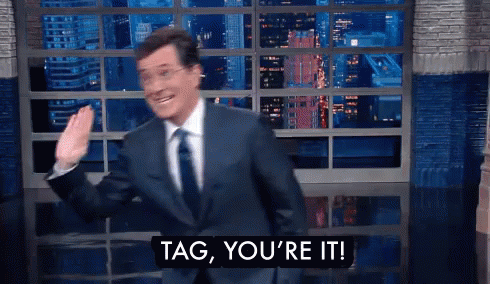
It’s more like a game of tennis- we go back and forth and engage in a dialogue, we ask questions to understand better, we reflect on how we’re responsible for a certain situation, and what solutions would meet the needs of everyone involved. Done well, this supports the growth of each party involved, and strengthens the evolution of the relationship.
Discernment
Finally, and perhaps most importantly, I learned the power of discernment from that experience in class. There’s an endless supply of feedback, criticism, and opinions about what we do and how we show up. The onus is on us to be discerning of which pieces of feedback are important to integrate, which pieces are important to know and notice, and which pieces are important to discard. Often when we give feedback, it’s littered with our own stories of the world, and we sometimes tend to project onto others our own issues and triggers. When seeking feedback on her writing, Elizabeth Gilbert uses a four question test-
- Do I trust this person’s taste and judgment?
- Does this person understand what I’m trying to create here?
- Does this person genuinely want me to succeed?
- Is this person capable of delivering the truth to me in a sensitive and compassionate manner?
When I look back at my own experience, much of the feedback that came my way didn’t pass through this filter. And the feedback that was really useful, both constructive and critical, did pass through this filter. As we continue to create, both in the world and at our workplace, it’s important to seek out a handful of people who pass this test, and elicit feedback from them to continue to support our growth and our work.
As much as we might prefer otherwise, there will always be rich, important, and useful insight into ourselves that will inevitably need to come from others. We will always have a few blindspots. The impetus then isn’t to eradicate our imperfections, but instead to cultivate resilience and the right relationships that continually support us in our growth and becoming.
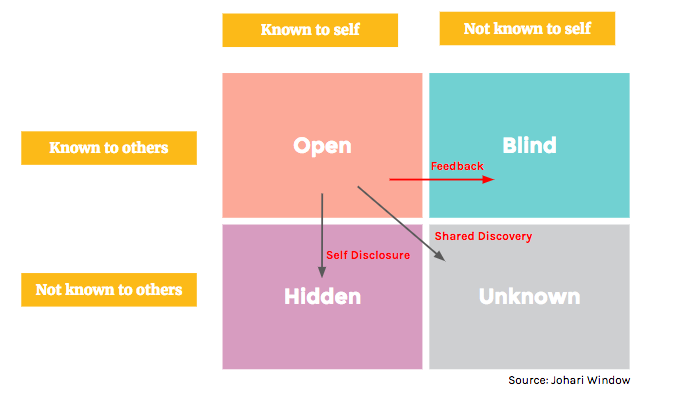
Given the self-managing context of our team at August, we’ve found it especially crucial to give and receive feedback on a consistent basis. This has pushed us in our own edges, but it has also supported us in cultivating a genuine commitment to each other’s learning, growth, and in our teaming as a group. It’s also supported us in enhancing the quality of our work. Finally, and most importantly, it’s created an environment where it’s okay for us to make mistakes and learn. As we continue to feel into the edges of self-management and try all sorts of different things to see what sticks, that has been our saving grace.





